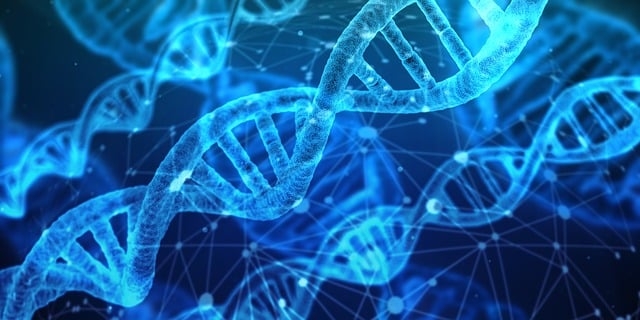

Image: Pixabay
BioDecision has developed a methodology that combines RNA sequencing and big data to offer the pharmaceutical industry molecular targets of interest for treatment of the disease.
BioDecision has developed a methodology that combines RNA sequencing and big data to offer the pharmaceutical industry molecular targets of interest for treatment of the disease.

Image: Pixabay
By Guilherme Mariano | Agência FAPESP – Data science is speeding up processes and diagnostics performed by companies in all sectors, including the pharmaceutical industry, which sold BRL 131.2 billion in medical drugs in 2022, according to statistics supplied by ANVISA, the federal body responsible for regulating healthcare products and clinical practices in Brazil.
BioDecision Analytics is a startup that aims to transform “pharma intelligence” (data intelligence in the pharmaceutical industry) into a daily practice in the academic and corporate environments.
Through a project funded by FAPESP’s Innovative Research in Small Business Program (PIPE), the health tech’s researchers are developing an analytical and predictive model based on RNA sequencing combined with pathological and clinical patient data to identify therapeutic and/or prognostic targets of biopharmaceutical interest.
The methodology is being used by researchers at the startup to conduct one of the largest studies of Huntington’s disease. The International Huntington Association (IHA) and Associação Brasil Huntington (ABH) are providing support.
“Previously published studies compared 20 to 40 samples from Huntington’s patients with samples from neurologically healthy subjects [who did not carry the mutation associated with the disease] and were older than the patients. In our study, we analyzed more than 300 samples, including 146 from Huntington’s patients obtained from public data repositories. This represents one of the largest studies of a rare disease,” said Rodrigo Pinheiro Araldi, BioDecision Analytics’s managing partner.
Huntington’s is an incurable disease that causes nerve cells in the brain to decay over time. It affects motor coordination, thinking ability and mental health. It is inherited through a mutation in a particular gene. Each child of a parent with Huntington’s has a 50% chance of inheriting the mutated gene, regardless of gender.
To identify molecular targets of biopharmaceutical interest for the treatment of Huntington’s, BioDecision Analytics’s researchers have developed a technology they call BDASeq.
“The technology we’ve developed seeks targets that can be used to develop medications and identifies prognostic targets that can enhance clinical trials by showing what needs to be measured in patients in order to confirm the efficacy of a drug,” Araldi said.
One of the molecular targets identified by the researchers using the new method is ADRA-2. Used in antidepressant and anxiolytic drug development, this biological marker has proved fundamental to the treatment of Huntington’s disease. Although it causes muscle rigidity, this side effect is beneficial for patients. “Huntington’s patients have chorea – involuntary and erratic movements of the trunk, extremities and face. These tend to cease when muscle rigidity is induced. We discovered that the medication helps reduce chorea while also treating depression,” Araldi said.
The findings of the study are medically screened, he stressed, and are not confined to the laboratory. “Clinical physicians analyze the data, signaling to the industry that a specific drug is important to enable patients to survive and live a better life,” he said.”
“Another key point is that our research findings can have a direct impact on the treatment of other diseases such as Parkinson’s and Alzheimer’s, which aren’t as rare as Huntington’s.”
Big data combined with biological interpretation
The methodology developed by BioDecision’s researchers combines big data with biological interpretation. They first collect sequencing data published by consortia and other research groups outside Brazil via public platforms and institutions such as the United States National Institutes of Health (NIH). “We then use statistical techniques and bioinformatics to extract information via transcriptomics [all RNA molecules in the sample],” said João Rafael Dias Pinto, co-founder of the startup.
“Next, we use artificial intelligence algorithms to look for interesting ways of understanding how specific genes are linked to life expectancy and neurodegeneration.”
Biological interpretation stage follows the computational analysis stage. Machine learning techniques are used to sift through highly complex datasets with tens of thousands of variables. This stage is usually managed by Benedito Faustinoni Neto, a statistician and one of the scientists who developed BDASeq.
The startup plans to continue looking for prospective customers and win a strong market position without losing sight of its growth target. For Araldi, scalability is the key to expansion. “We want to transform BDAseq into a web service platform,” he said.
Recognition has not been lacking. In April, the researchers attended Swiss Biotech Day in Basel, as members of a delegation organized by the Brazilian Pharmaceutical Industry Association (Sindusfarma) and the Brazilian Pharmaceutical Innovation Network (RBIF). In May, they will present the technology at the MENA Congress on Rare Diseases, an annual event that will take place this year in Abu Dhabi, United Arab Emirates (UAE).
Bottlenecks
Other bottlenecks faced by BioDecision include the long lead time and high cost of drug development. It plans to use the knowledge acquired in its research on Huntington’s to help the pharmaceutical industry reduce these two factors.
According to industry sources, it costs USD 1.2 billion on average to bring a new drug to market, and only one out of every 5,000-10,000 new molecules screened by researchers succeeds in passing all the requisite tests and trials to win regulatory approval. According to Araldi, this can be improved by deploying what he called “pharma intelligence”.
“We’re partnering with Service Information and Google to convert all this into reality,” he said.
(image by Gerd Altmann on Pixabay)
Republish
The Agency FAPESP licenses news via Creative Commons (CC-BY-NC-ND) so that they can be republished free of charge and in a simple way by other digital or printed vehicles. Agência FAPESP must be credited as the source of the content being republished and the name of the reporter (if any) must be attributed. Using the HMTL button below allows compliance with these rules, detailed in Digital Republishing Policy FAPESP.





